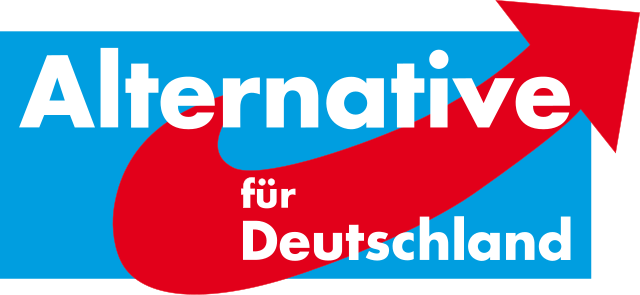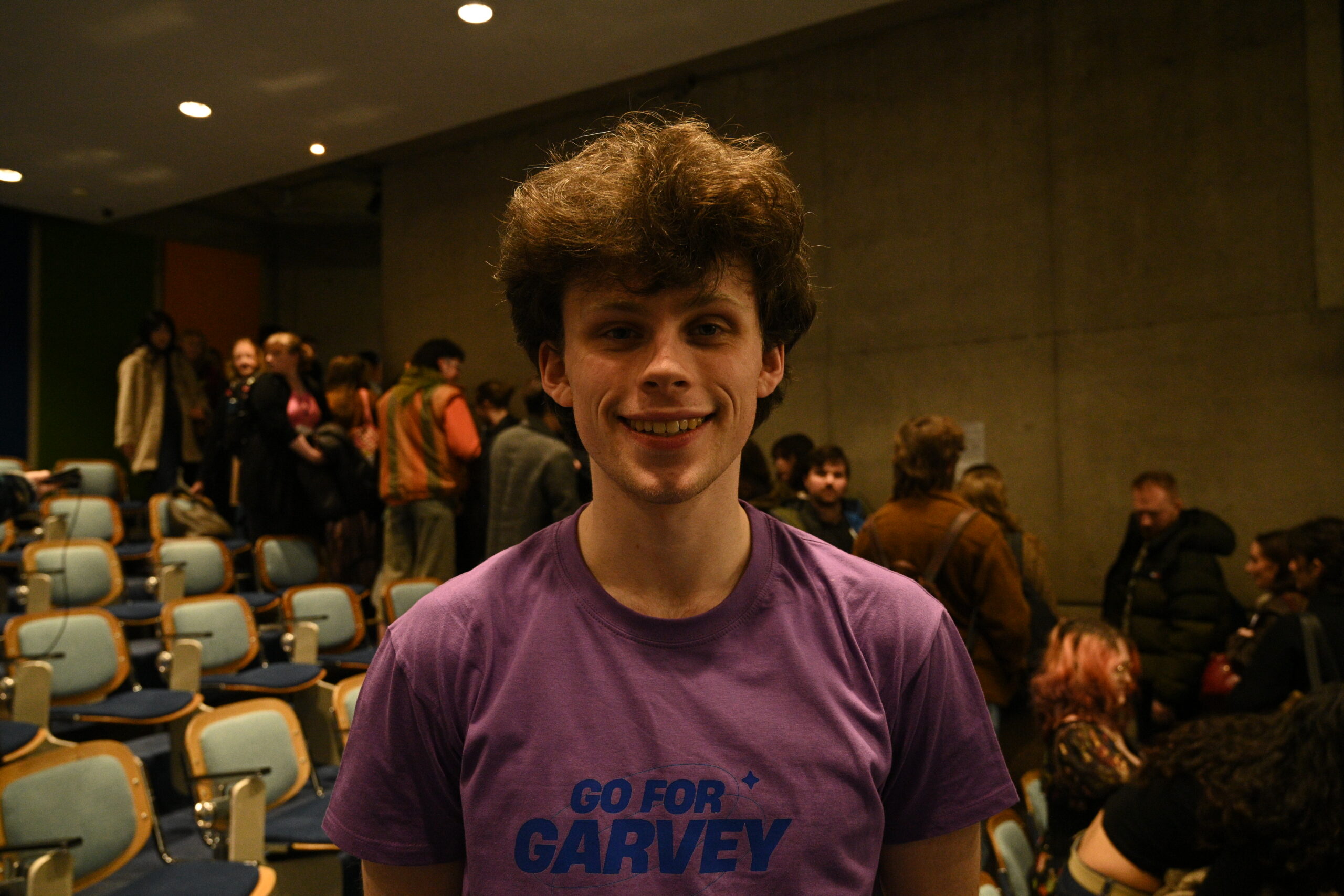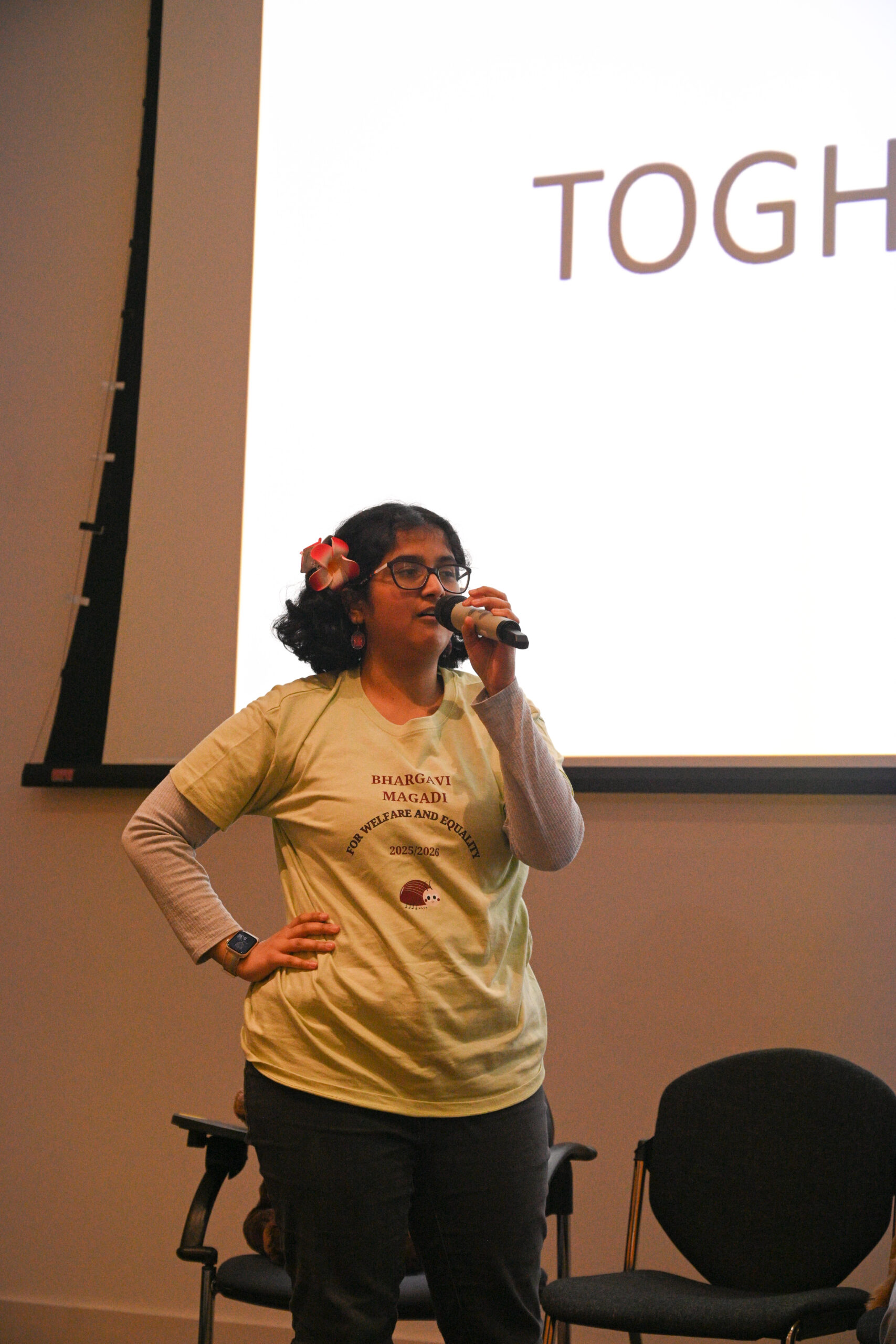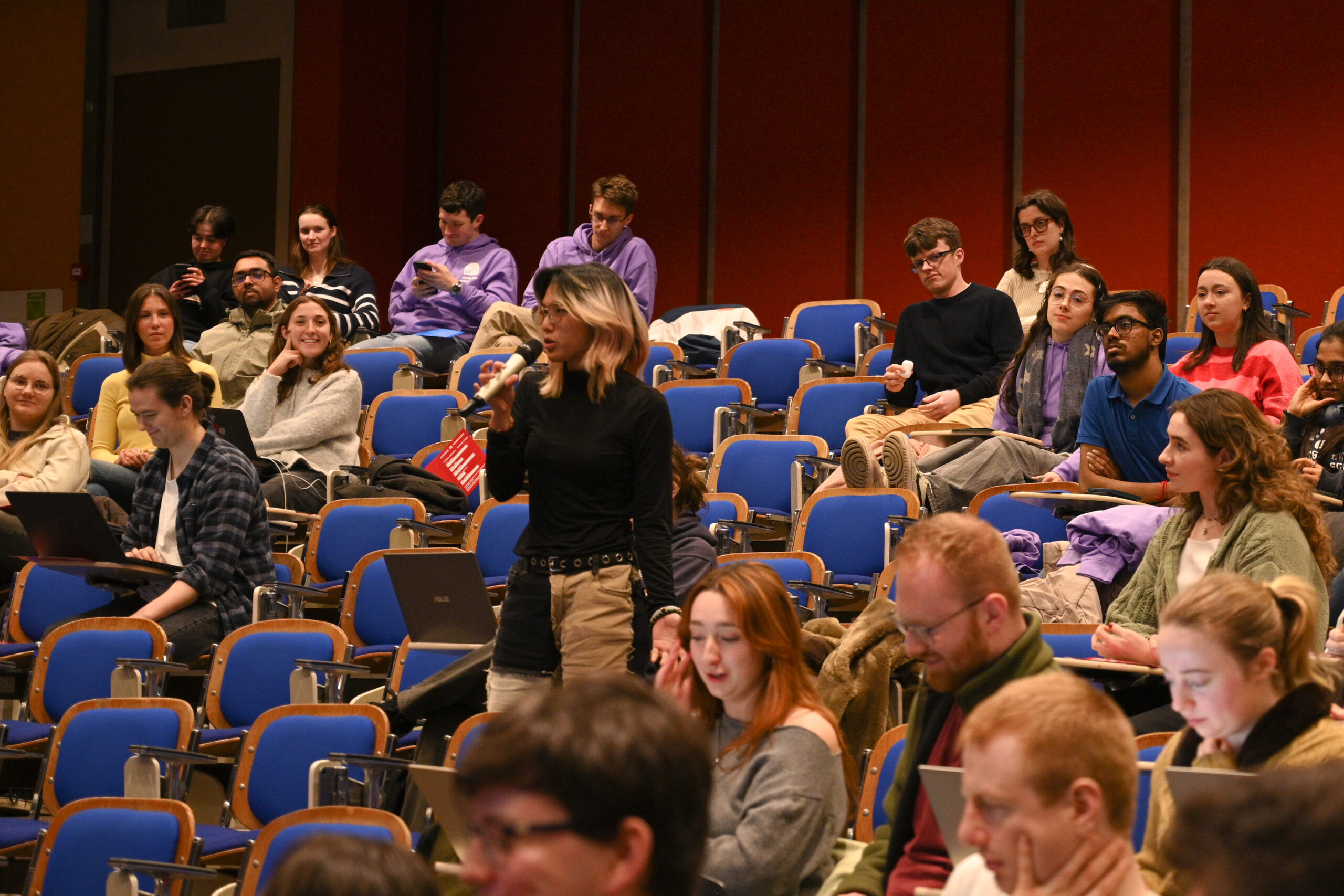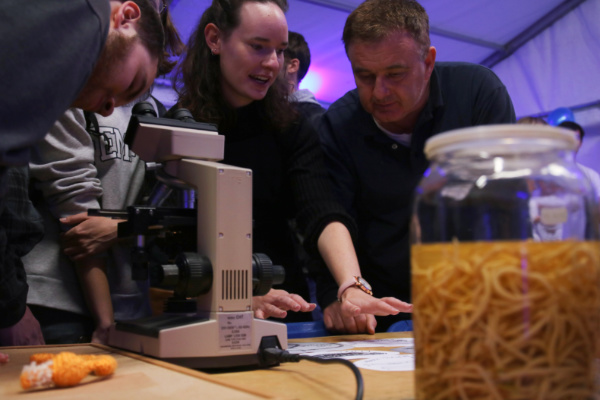
Held in Trinity’s Front Square this evening, Probe 2018 offered an evening of exploring how cutting-edge research can help to tackle some of society’s biggest challenges. Probe is a collaboration between Trinity and the Science Gallery, in partnership with the British Council. The pop-up festival showcased the diverse range of academic research taking place in Dublin by engaging and involving the public with live experiments, exclusive demonstrations and interactive workshops.
Probe brought together the vast mix of research work being conducted by Irish researchers. Dealing with work often regarded as somewhat inaccessible to the non-scientist, Probe opened up a world of experiments and interactive workshops to the unassuming front square admirer.
Walking under Front Arch, visitors entered a Front Square playing host to a number of looming white marquees, buoyed by the excitement and enthusiasm of attendees and participants. Each tent offered a different world of possibilities, from psychology research to storytelling.
Nessa Lahert, a psychology graduate, worked on a project alongside Sharon Eager and Beth Kellaghan. Their study was overseen by Clare Kelly, and looked at three areas: autism, depression and the developing brain in adolescence. It seeks to understand how young people use coping strategies to deal with challenging situations. In an age when mental health questions have come to the fore, this event was sure to attract a number of participants eager to learn more about their mental health.
Another set of researchers, Niamh McCabe, Marilena Karavyraki and Stefania Magnane, displayed their research into oral and oesophageal cancer. The goal of the project was to improve communications between academic and industry partners throughout Europe, and was run in collaboration with Trinity’s School of Dentistry.
The beauty of the event lay in its broad appeal and discernible effort to open the world of research and science up to students and passers-by alike. Both the work of linguists and researchers-turned-poets grabbed the attention as people walked through the tents. While students may joke that the Hamilton and Arts Block are irreconcilably at odds, Probe undermined any such notions as researchers displayed their experience through both poetry and story-telling.
Bringing some laughter to the pop-up festival, Bright Club stand-up comedy also made an appearance while researchers of the Book of Kells gave attendees a glimpse into the process of their work. Indeed, Probe tapped into a variety of interests and curiosities.

